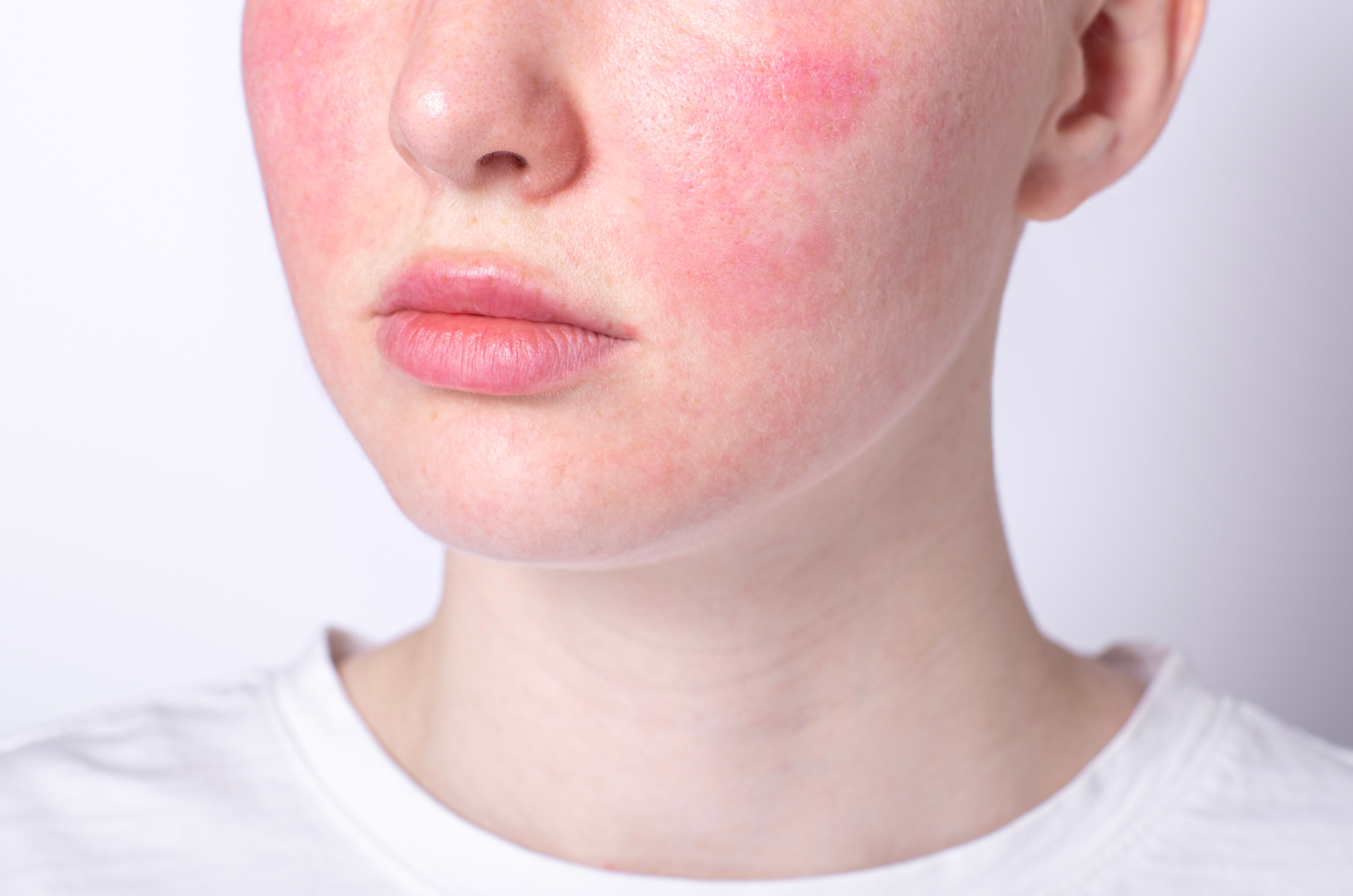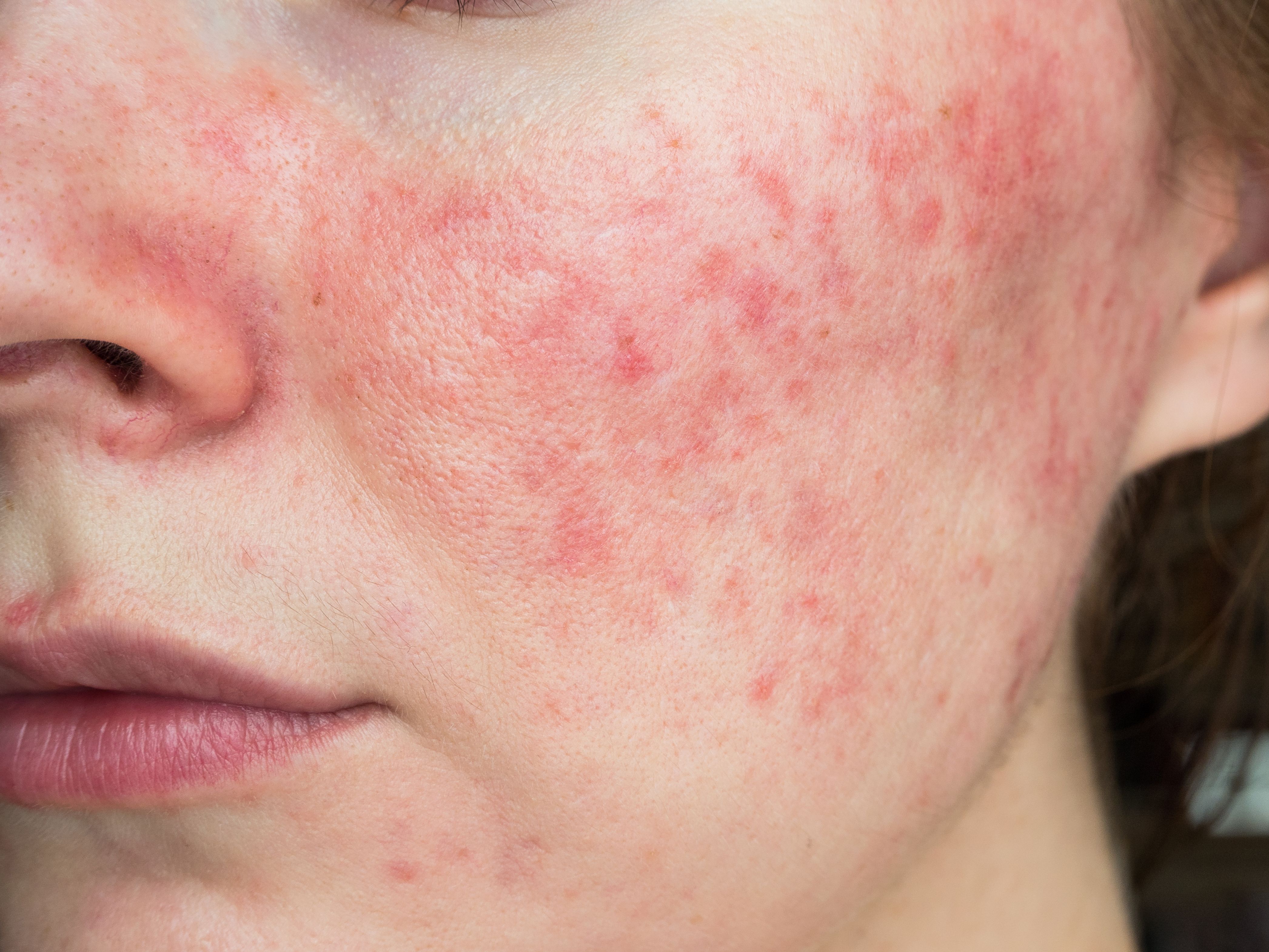- Case-Based Roundtable
- General Dermatology
- Eczema
- Chronic Hand Eczema
- Alopecia
- Aesthetics
- Vitiligo
- COVID-19
- Actinic Keratosis
- Precision Medicine and Biologics
- Rare Disease
- Wound Care
- Rosacea
- Psoriasis
- Psoriatic Arthritis
- Atopic Dermatitis
- Melasma
- NP and PA
- Skin Cancer
- Hidradenitis Suppurativa
- Drug Watch
- Pigmentary Disorders
- Acne
- Pediatric Dermatology
- Practice Management
- Prurigo Nodularis
- Buy-and-Bill
News
Article
Low-Dose Isotretinoin to Treat Resistant Rosacea
Author(s):
Researchers found evidence from numerous studies claiming LDI could improve rosacea symptoms and decrease flare-ups.
Image Credit: © iso100production - stock.adobe.com

A recent study out of the George Washington University School of Medicine critically evaluated available data to spotlight the benefits of using isotretinoin for rosacea. According to the university’s press release, the systematic review found a reduction in rosacea symptoms, such as improvement in skin condition and decreased flare-ups, with the use of lose-dose isotretinoin (LDI).1
Typically for rosacea treatment, researchers wrote that global guidelines recommend using oral antibiotics combined with topical anti-inflammatory agents for management. However, they noted that for many with moderate to severe rosacea, this approach can be ineffective and “unique therapeutic approaches,” such as isotretinoin, are needed.2
Study Specifics
Fourteen of the 34 studies (n = 1320) researchers investigated as part of the review assessed the use of LDI (0.1-0.5mg/kg/day or fixed doses of 10-20mg/day) for moderate to severe and recalcitrant rosacea for an average treatment time of 16 weeks or longer. Most patients in these studies reported commonly affected sites such as cheeks, nose, and forehead. Investigators found that reductions in total number of papules, pustules, and erythema ranged from 71% to 83% to complete clearance. While increased tolerability was reported at 10mg/day (n = 556), researchers noted disease remission periods varied based on the use of additional therapies.
One retrospective study (n = 52) assessed open-label LDI treatment for 57 weeks. Researchers noted the initial dose being 20mg/day, with adjustments made accordingly due to patient response. They reported “significant” improvement, with 91% of patients experiencing complete clearance of papulopustules and/or 75% to 99% reduction of papulopustules. The study claims that although each patient’s treatment was individualized by altering LDI dosages to control their specific symptoms and any concomitant disease, 71% of patients reduced their isotretinoin dose to 10mg 3 times a week within 3 months of starting therapy. Patients then continued with this dosage for a year.3
Analyzing the Data
Researchers behind the review examined data from randomized controlled trials, retrospective studies, and case studies, focusing on optimal dosage, treatment duration, and efficacy outcomes. They found patient symptoms reduced with LDI showing improvement in skin condition, decreased flare-ups, and increased disease remission durations.
"Our findings provide robust evidence that low-dose isotretinoin can be an effective and safe treatment option for rosacea patients who have not responded to traditional treatments," one of the investigators said in the release. "This study provides practical support to hopefully encourage others to expand their management paradigm to address the large population of those not responding to standard approaches and continuing to suffer from this distressing condition."
In the study, researchers witnessed that isotretinoin can reduce sebaceous gland size, activity, induce apoptosis, and down regulate pattern recognition receptor expression contributing to disease pathophysiology, resulting in a reduction of inflammation.
Drawing Conclusions
Given the results of multiple studies included in the review, the researchers concluded that a modern to strong level of evidence supports the treatment of resistant rosacea using isotretinoin. They reported most studies being randomized, controlled trials, each having a marginal risk of biases, each demonstrating consistency, and generating similar clinical outcomes. Even with this in mind, the researchers noted that routine LDI use is limited by lack of standardized protocols, warranting additional long-term, high-powered studies to guide future directions, such as consensus on optimal dosage and treatment intervals needed to maintain disease clearance.
Adverse effects researchers observed included:
- Headaches/fatigue
- Elevated liver transaminases, TRGs, cholesterol, etc.
- Myalgia/arthralgia
- Ocular discomfort/dry eyes
- Xerosis/photosensitivity/alopecia/skin fragility/nail dystrophy/facial erythema/etc.
References
1. New research examines treatment strategy for resistant rosacea. News release. Newswise. May 29, 2024. Accessed June 3, 2024. https://www.newswise.com/articles/new-research-examines-treatment-strategy-for-resistant-rosacea
2. Desai S, Friedman A. Isotretinoin as a treatment strategy for rosacea: A systematic review. JAAD International (2024), doi: https://doi.org/10.1016/j.jdin.2024.04.009.
3. Rademaker, M. Very low-dose isotretinoin in mild to moderate papulopustular rosacea; a retrospective review of 52 patients. Aust. J. Dermatol. 2018;59(1):26-30. doi:10.1111/ajd.12522






